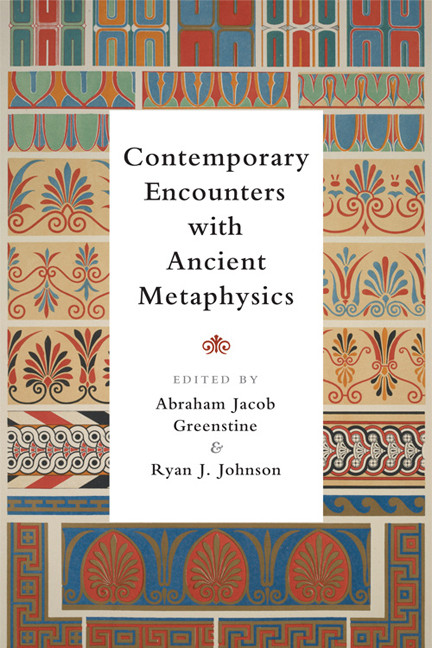9 - Does It Matter? Material Nature and Vital Heat in Aristotle’s Biology
Summary
INTRODUCTION
In Gender: Antiquity and Its Legacy, Brooke Holmes makes the controversial claim that sexual difference in Aristotle is contingent, belonging to a “realm more fluid and accidental than that of essence and principles – namely, the realm of matter.” This position would see the difference between the male and female contributions – semen and menses – as a material one. If it is material, I maintain that it reveals something about how material operates in Aristotle. The effort to distinguish material from form requires affirming either a formal difference between them or a material difference. If the difference between them is formal, as it seems it must be (if form and matter are the contradictories that Aristotle suggests they are), then material is of a different form than form. If the difference is material, as the account of the difference between semen and menses on the basis of degrees of vital heat in Aristotle's biology suggests, then form and matter differ along a continuum, more as contraries that at some degree of heat pass into one another than as contradictories with an excluded middle where the presence of one negates the other. Yet an account of generation that is modeled on artifice, where form is imposed on matter, would seem to require a distinction between the formal and material principles of generation.
In this essay, I frame this question in terms of feminist critiques of the form and material binary, critiques which can be encapsulated in disputes over whether Aristotle's account of generation is a one-sex model or a two-sex model. I turn to Aristotle's account of vital heat to suggest that it is a one-sex model whose difference is on a continuum. I then explain how the difference between contradictories and contraries in Aristotle shows how the difference between material and form, explained through the higher degree of vital heat in semen than in menses, is a difference of contraries and not contradictories and thus a material rather than a formal difference. I conclude that since the two principles are related on a continuum, reproduction should not be conceived through a simple artifice model where form is imposed on matter.
- Type
- Chapter
- Information
- Contemporary Encounters with Ancient Metaphysics , pp. 158 - 179Publisher: Edinburgh University PressPrint publication year: 2017



